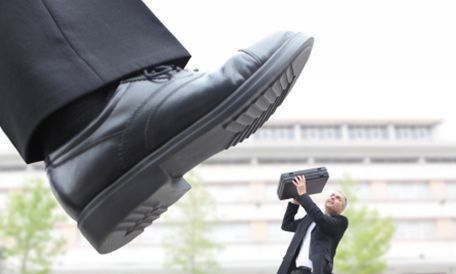英文法律词典 C-31
|
CHECK BOOK, commerce. One kept by persons who have accounts in bank, in which are printed blank forms of cheeks, or orders upon the bank to pay money. CHEMISTRY med. jur. The science which teaches the nature and property of all bodies by their analysis and combination. In considering cases of poison, the lawyer will find a knowledge of chemistry, even very limited in de ree, to be greatly useful. 2 Cbit. Pr. 42, n. CHEVISANCE, contracts, torts. This is a French word, which signifies in that language, accord, agreement, compact. In the English statutes it is used to denote a bargain or contract in general. In a legal sense it is taken for an unlawful bargain or contract. CHIEF, principal. One who is put above the rest; as, chief magistrate chief justice : it also signifies the best of a number of things. It is frequently used in composition. CHIEF CLERK OF THE DEPARTMENT OF STATE. This officer is appointed by the secretary of state; his duties are to attend to the business of the ofFice under the superintendence of the secretary; and when the secretary shall be removed from office, by the president, or in any other case of vacancy, shall, during such vacancy, have the charge and custody of all records, books and papers appertaining to such department, CHIEF JUSTICE, officer. The president of a supreme court; as the chief justice of the United States, the chief justice of Pennsylvania, and the -like. Vide 15 Vin. Ab. 3. CHIEF JUSTICIARY. An officer among the English, established soon after the conquest. 2. He had judicial power, and sat as a judge in the Curia Regis. (q. v.) In the absence of the king, he governed the kingdom. In the course of time, the power and distinction of this officer gradually diminished, until the reign of Henry III, when the office was abolished. CHILD, CHILDREN, domestic relations. A child is the son or daughter in relation to the father or mother. 2. We will here consider the law, in general terms, as it relates to the condition, duties, and rights of children; and, afterwards, the extent which has been given to the word child or children by dispositions in wills and testaments. 3. - 1. Children born in lawful wedlock, or within a competent time afterwards, are presumed to be the issue of the father, and follow his condition; thoseborn out of lawful wedlock, follow the condition of the mother. The father is bound to maintain his children and to educate them, and to protect them from injuries. Childrenare, on their part, bound to maintain their fathers and mothers, when in need, and they are of ability so to do. Poth. Du Marriage, n. 384, 389. The father in general is entitled to the custody of minor children, but, under certain circumstances, the mother will be entitled to them, when the father and mother have separated. 5 Binn. 520. Children are liable to the reasonable correction of their parents. Vide Correction 4. - 2 The term children does not ordinarily and properly speaking comprehend grandchildren, or issue generally; yet sometimes that meaning is, affixed to it, in cases of necessity; 6 Co. 16; and it has been held to signify the same as issue, in cases where the testator, by using the terms children and issue indiscriminately, showed his intention to use the former term in the sense of issue, so as to entitle grandchildren, & c., to take under it. 1 Ves. sen. 196; Ambl. 555; 3 Ves. 258; Ambl. 661; 3 Ves. & Bea. 69. When legally construed, the term children is confined to legitimate children. 7 Ves. 458. The civil code of Louisiana, art. 2522, n. 14, enacts, that "under the, name of children are comprehended, not only children of the first degree, but the grandchildren, great-grand-children, and all other descendants in the direct line." 5. Children are divided into legitimate children, or those born in lawful wedlock; and natural or illegitimate children, who are born bastards. (q. v.) Vide Natural Children. Illegitimate children are incestuous bastards, or those which are not incestuous. 6. Posthumous children are those who are born after the death of their fathers. Domat, Lois Civ. liv. prel. t. 2, s. 1, 7 L. 3, 1, ff de inj. rupt. 7. In Pennsylvania, the will of their fathers, in, which no provision is made for them, is revoked, as far as regards them, by operation of law. 3 Binn. R. 498. See, as to the law of Virginia on this subject, 3 Munf. 20, and article In ventre sa mere. Vide, generally, 8 Vin. Ab. 318; 8 Com. Dig. 470; Bouv. Inst. Index, h. t.; 2 Kent, Com. 172; 4 Kent, Com. 408, 9; 1 Rop. on Leg. 45 to 76; 1 Supp. to Ves. jr. 442 Id. 158; Natural children. |








